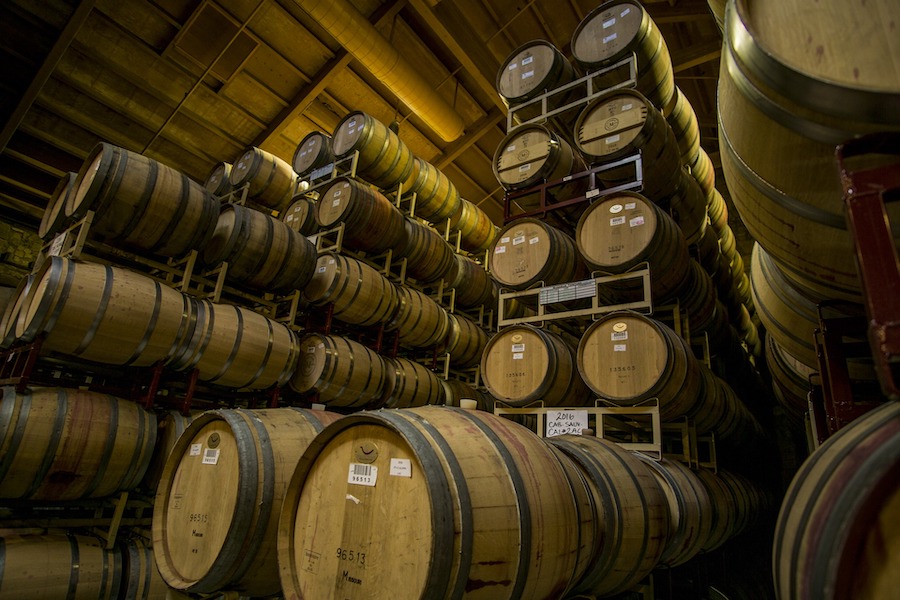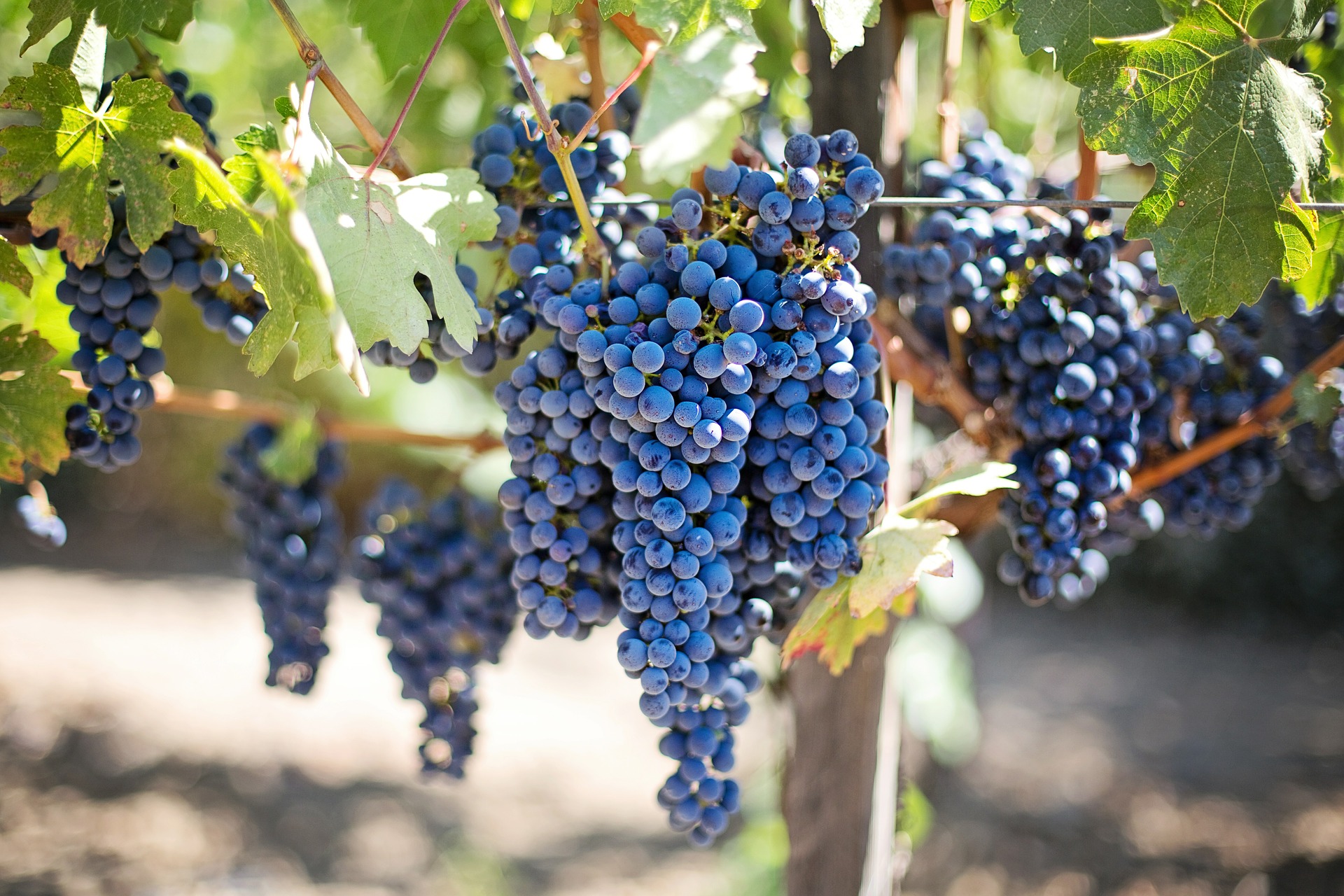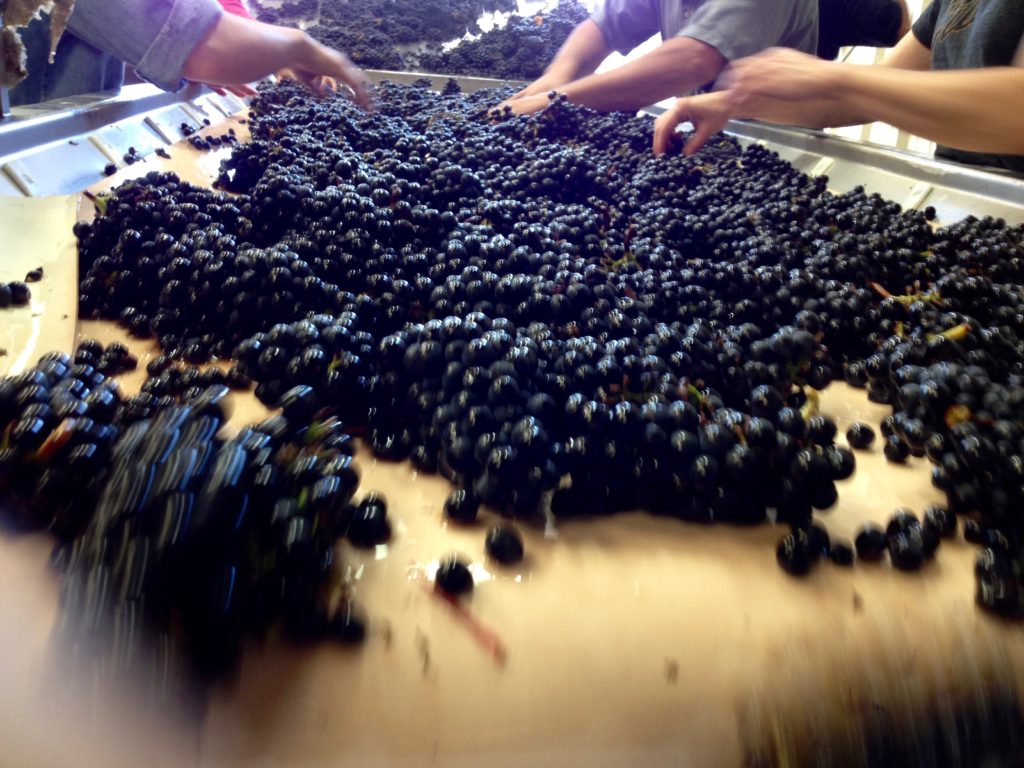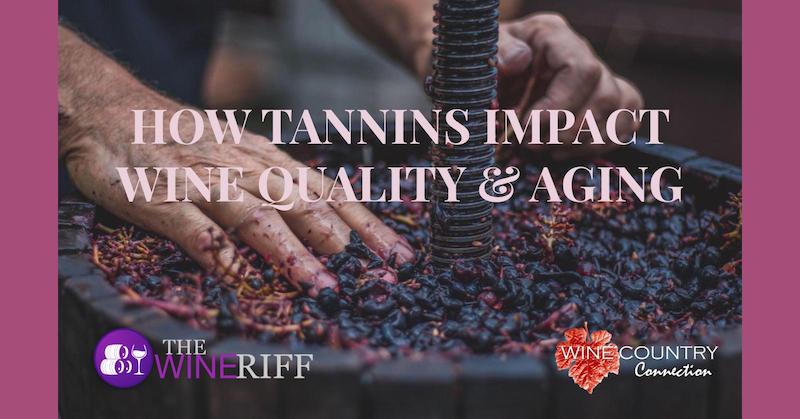From Astringency to Richness:
How Tannins Impact Wine Quality and Aging
Tannins are a group of naturally occurring compounds found in grapes, as well as other fruits, vegetables, and trees. In wine, tannins come primarily from the skins, seeds, and stems of the grapes, as well as the oak barrels they are aged in. Tannins give wine its characteristic astringency, bitterness, and mouth-drying sensation.


The quality and ageability of wine can be influenced by the amount and quality of tannins present. Tannins are a key factor in the structure and balance of wine, along with acidity, alcohol, and fruit flavors. Tannins provide a backbone and structure to the wine that can support aging, giving the wine complexity, depth, and richness over time.
However, too much tannin can make wine unapproachable and harsh in its youth, and may even overwhelm the fruit flavors. On the other hand, insufficient tannins can result in a wine that lacks structure and may not age as well. The quality of tannins also plays a role, as some tannins can be harsh and astringent, while others are more refined and contribute to a smooth, velvety texture.

Winemakers can influence the tannin levels and quality in wine through various techniques, such as grape selection, maceration time, barrel aging, and blending. Understanding tannins and their effects on wine can help wine enthusiasts appreciate and evaluate wine more effectively.
Sign up to our Email List to Get Notified of Members’ Specials, New Releases and New Discoveries. Click here to sign up. There is no obligation and you can unsubscribe anytime.
Varieties Most Effected by Tannins
Tannin levels can vary depending on a number of factors such as grape variety, climate, soil, winemaking techniques, and aging. However, some grape varieties are known to produce wines with higher levels of tannins compared to others.
Generally, red wines have higher levels of tannins compared to white wines as the skins and seeds of red grapes contain more tannins. Here are some grape varieties that are known to produce wines with higher levels of tannins:

1. Cabernet Sauvignon: This is a popular red grape variety that produces wines with high tannin levels. Cabernet Sauvignon wines are often described as full-bodied, with a firm structure and notes of blackcurrant and cedar.
2. Nebbiolo: This is a grape variety that is predominantly grown in the Piedmont region of Italy. Wines made from Nebbiolo grapes are known for their high tannin levels and complex flavors of cherry, leather, and spices.
3. Syrah/Shiraz: This is a grape variety that is grown in many wine regions around the world. Syrah/Shiraz wines are known for their high tannin levels, dark fruit flavors, and spicy notes.
4. Tannat: This is a grape variety that is grown mainly in the Southwest of France and in Uruguay. Wines made from Tannat grapes are known for their high tannin levels, deep color, and flavors of dark fruits, herbs, and chocolate.
5. Sangiovese: This is a grape variety that is grown mainly in the Tuscany region of Italy. Sangiovese and Sangiovese Grosso grapes are used in such wines as Brunello di Montalcino, Chianti Classico and Vino Nobile di Montepulciano are some of the main wines produced from this grape variety. The Sangiovese grape’s high tannin content and acidity make this varietal one of the most loved in the world.
It’s worth noting that tannins are not always a measure of wine quality. In fact, some of the world’s greatest wines have moderate tannin levels that are balanced by acidity and fruit flavors. The key is to find a wine that suits your taste preferences and occasion.

NOTE: All wines offered for sale on this website are sold through our affiliate and fulfillment partner, Wine Country Connection.
WARNING: Drinking distilled spirits, beer, coolers, wine and other alcoholic beverages may increase cancer risk, and, during pregnancy, can cause birth defects. For more information go to www.P65Warnings.ca.gov/alcohol.


